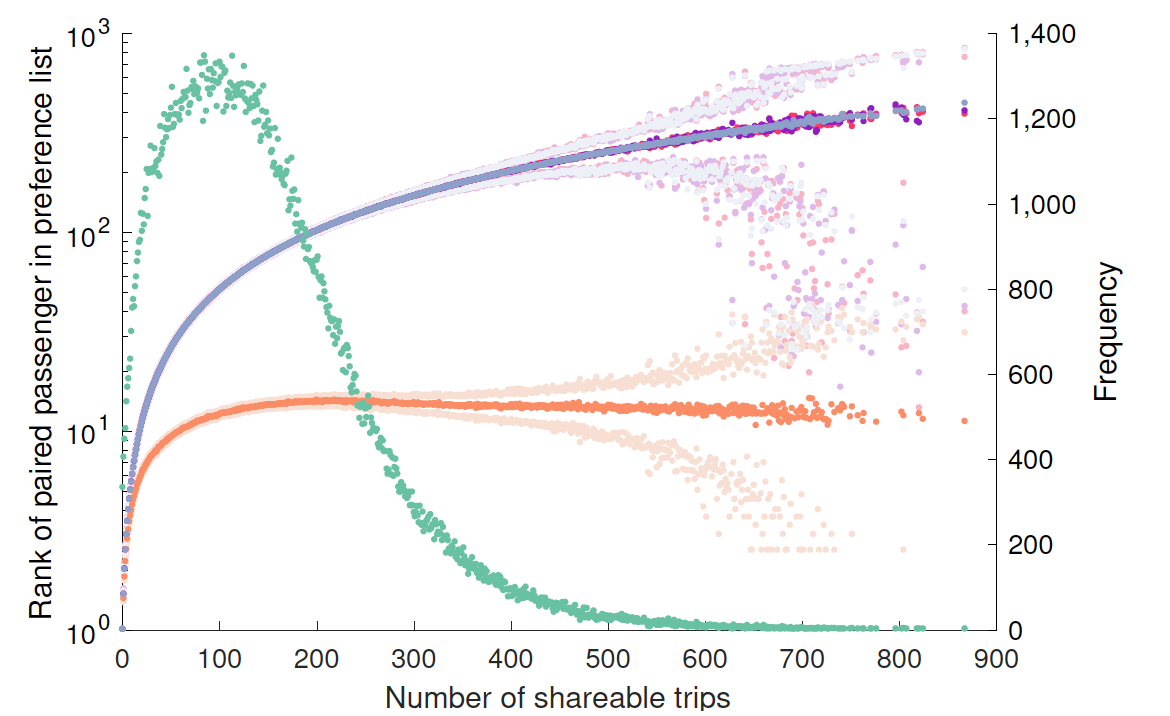| Title | Mobility Sharing as a Preference Matching Problem |
| Publication Type | Journal Article |
| Year of Publication | 2018 |
| Authors | Hongmou Zhang, Jinhua Zhao |
| Journal | IEEE Transactions on Intelligent Transportation Systems |
| Keywords | matching, Mobility sharing, preference, social interaction |
| Abstract | Traffic congestion, dominated by single-occupancy vehicles, reflects not only transportation system inefficiency and negative externalities, but also a sociological state of human isolation. Advances in information and communication technology are enabling the growth of real-time ridesharing to improve system efficiency. While ridesharing algorithms optimize passenger matching based on efficiency criteria (maximum number of paired trips, minimum total vehicle-time or vehicle-distance traveled), they do not explicitly consider passengers' preference for each other as the matching objective. We propose a preference-based passenger matching model, formulating ridesharing as a maximum stable matching problem. We illustrate the model by pairing 301,430 taxi trips in Manhattan in two scenarios: one considering 1,000 randomly generated preference orders, and the other considering five sets of group-based preference orders. In both scenarios, compared with efficiency-based matching models, preference-based matching improves the average ranking of paired fellow passenger to the near-top position of people's preference orders with only a small efficiency loss at the individual level, and a moderate loss at the aggregate level. The near-top-ranking results fall in a narrow range even with the random variance of passenger preference as inputs. Cite as: Zhang, Hongmou, and Jinhua Zhao. 2018. “Mobility Sharing as a Preference Matching Problem.” IEEE Transactions on Intelligent Transportation Systems. |
| URL | https://mobility.mit.edu/sites/default/files/Zhang%20and%20Zhao_2018_Mobility%20Sharing%20as%20a%20Preference%20Matching%20Problem.pdf |
| DOI | 10.1109/TITS.2018.2868366 |
image:
